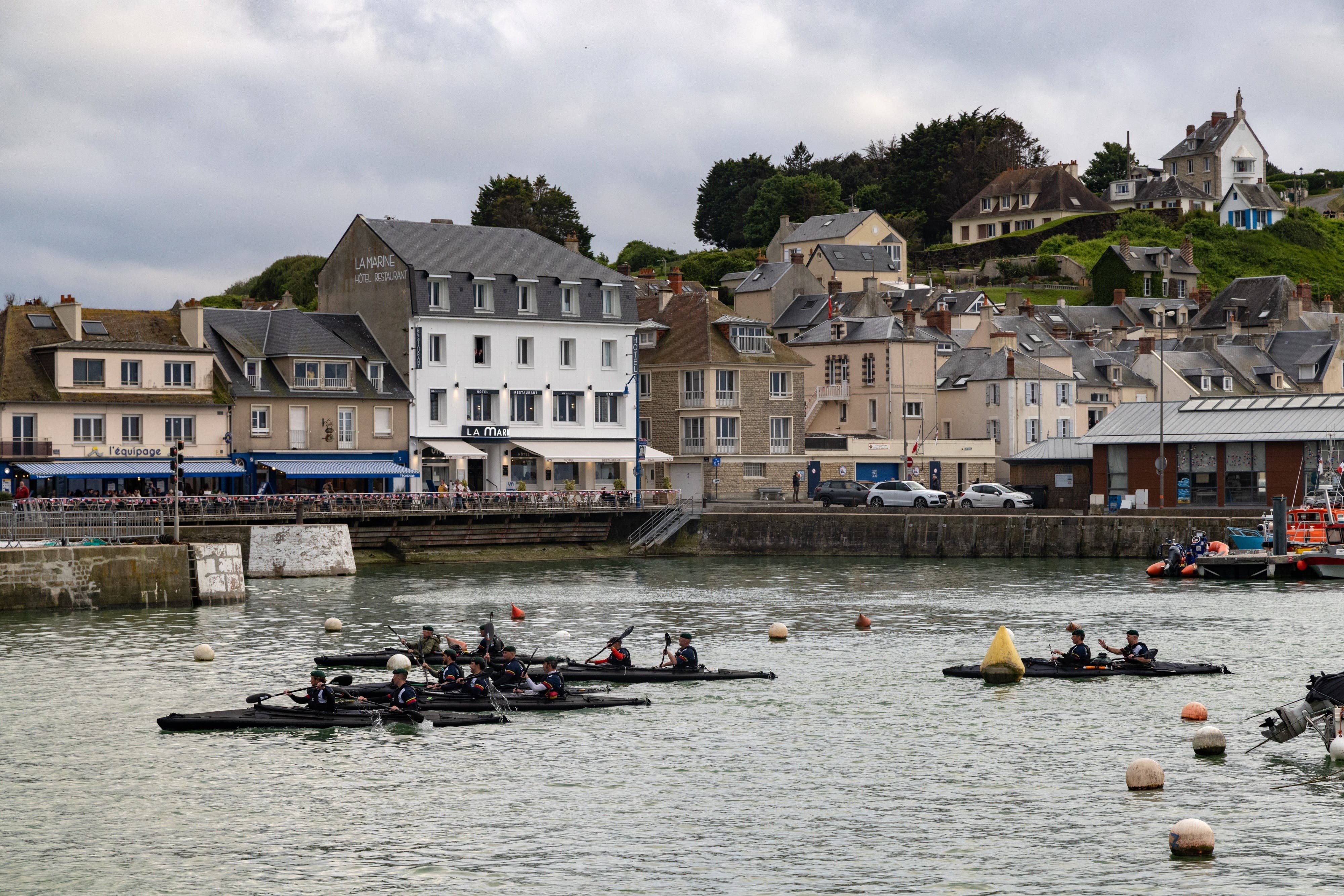Dry weather forecast for D-Day commemorations in Normandy
In Falmouth, Cornwall, which will host an 80-strong flotilla, there will be a ‘small chance of stray showers in the morning’.

Your support helps us to tell the story
From reproductive rights to climate change to Big Tech, The Independent is on the ground when the story is developing. Whether it's investigating the financials of Elon Musk's pro-Trump PAC or producing our latest documentary, 'The A Word', which shines a light on the American women fighting for reproductive rights, we know how important it is to parse out the facts from the messaging.
At such a critical moment in US history, we need reporters on the ground. Your donation allows us to keep sending journalists to speak to both sides of the story.
The Independent is trusted by Americans across the entire political spectrum. And unlike many other quality news outlets, we choose not to lock Americans out of our reporting and analysis with paywalls. We believe quality journalism should be available to everyone, paid for by those who can afford it.
Your support makes all the difference.D-Day ceremonies on Thursday marking the 80th anniversary of the Normandy landings should be able to go ahead without disruption thanks to dry weather, the Met Office has said.
Met Office forecaster Craig Snell said Normandy, where the main commemorations will take place, will be “generally dry” and overcast in the morning but will brighten up around lunchtime.
Mr Snell said: “It’ll be pretty dry on either side of the channel. It shouldn’t hamper any commemorations during the day.
“It will be better weather compared to what they had then [in 1944]. Less windy and probably a bit brighter.”
In Falmouth, Cornwall, which will host an 80-strong flotilla, there will be a “small chance” of stray showers in the morning but it “shouldn’t impact” the town’s plans to mark the anniversary.
It’ll be pretty dry on either side of the channel. It shouldn’t hamper any commemorations during the day
At the National Memorial Arboretum in Staffordshire, where the Royal British Legion’s service of remembrance is taking place in the afternoon, there will be “on and off” showers “from the word go”.
Mr Snell said: “Staffordshire will see a greater chance of showers, so people might need to have a brolly to hand.”
The weather was pivotal in setting the date for the D-Day landings.
US president Dwight Eisenhower moved the planned landings back by 24 hours on June 4, because his meteorologists forecast that conditions would worsen, according to the Imperial War Museum.
However, the decision to move the landings back further was difficult because any greater delay would risk the plans getting out.
Instead they opted for June 6 based on a prediction by Mr Eisenhower’s chief meteorologist, Group Captain James Stagg, that there would be a temporary break in the bad weather.
The weather of the planned day was “not ideal”, according to the Museum. Strong winds brought the tide in earlier than expected, making the beach obstacles harder to see.
However, had the Allies delayed by two weeks, it would have meant attempting the landing on June 19, the day a severe storm hit the Channel, damaging one of the two Mulberry harbours and destroying the other, disrupting the transfer of Allied soldiers to France.